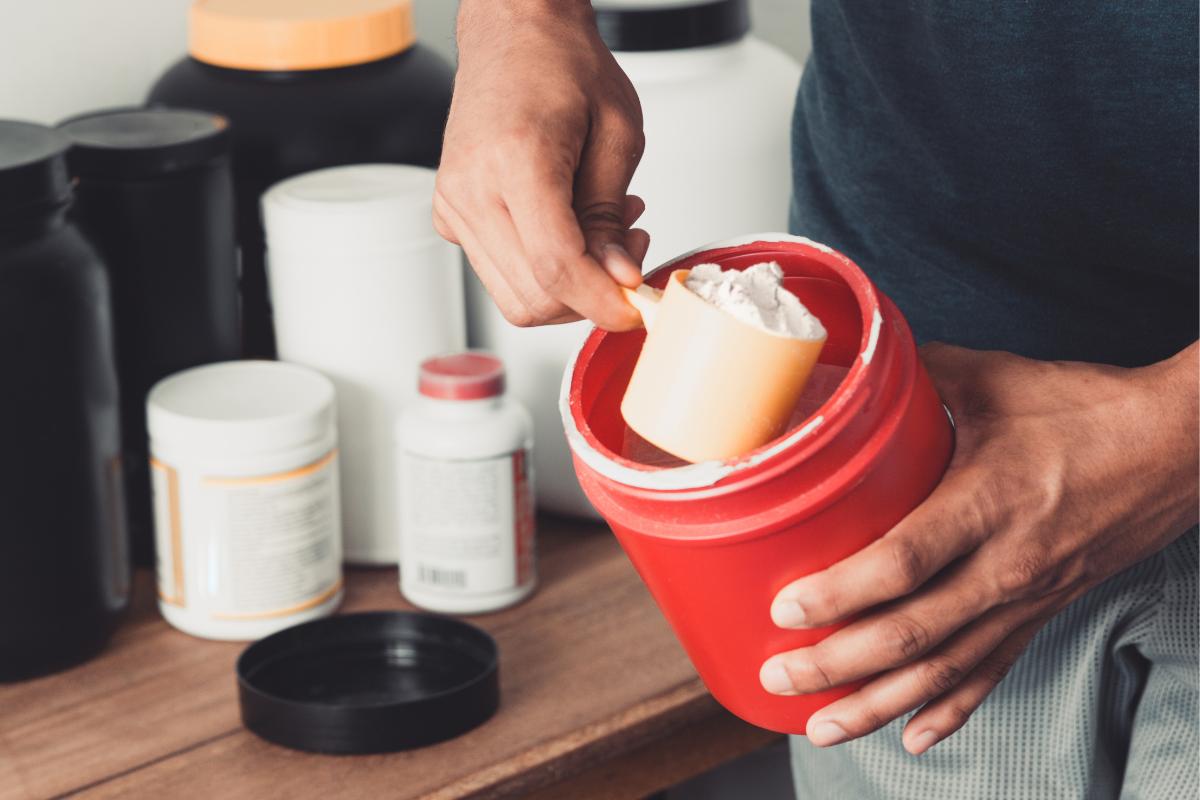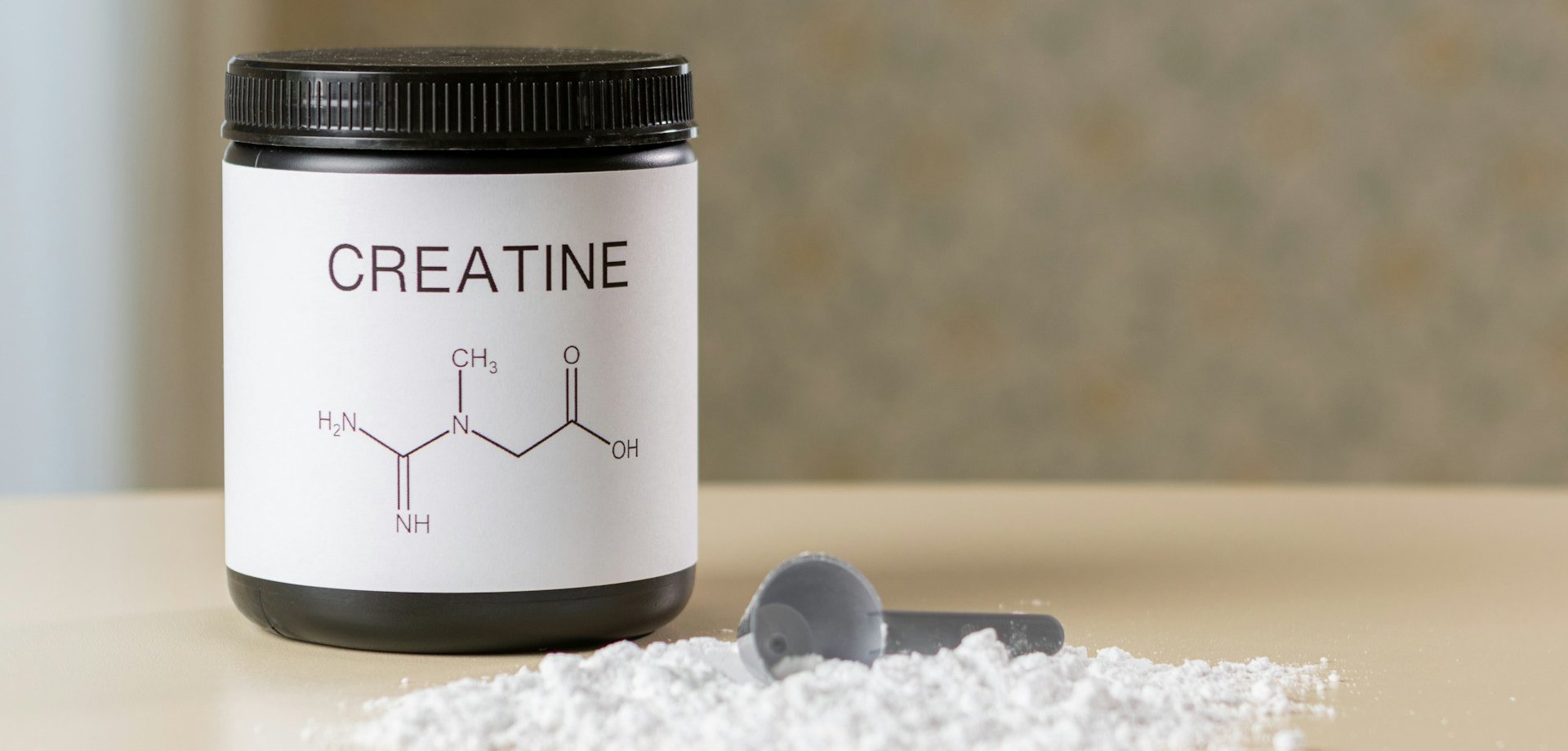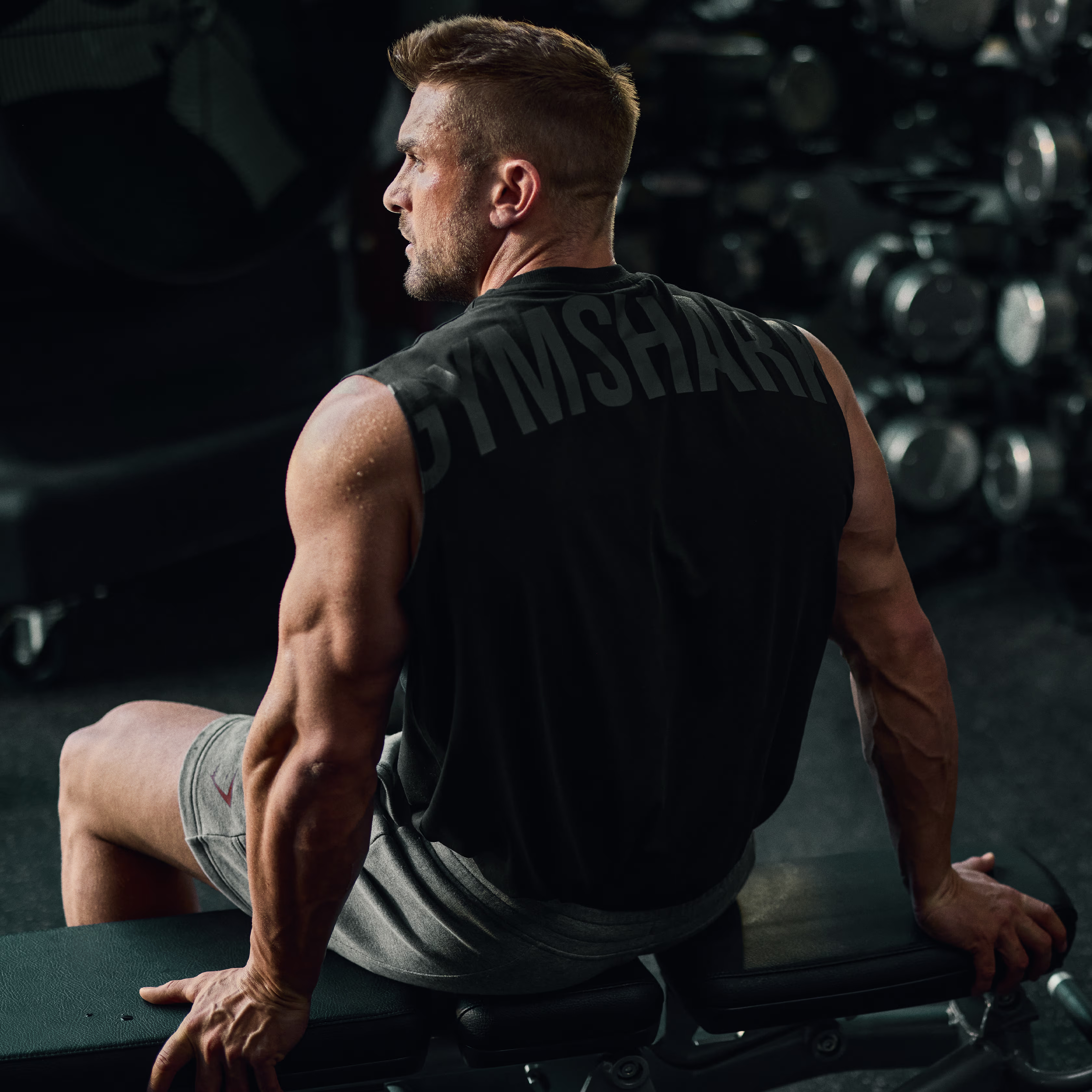Creatine Effectiveness: What Does Science Say About Its Benefits?
Author:
Julio Valero
Published on:
5/20/2025

The psychological effect of acute creatine supplementation before training induces an improvement in resistance exercise performance
The powerful placebo effect can alter the results of interventions. This study investigated whether belief in the benefits of creatine improves performance, independent of actual administration.
Overview
This study examined and compared performance in the Smith machine squat and bench press exercises in response to four experimental conditions: a control group, a placebo group (dextrose administration), a creatine supplementation group (referred to as Cr-True), and a group given dextrose that was misleadingly given creatine (referred to as Cr-False).
All treatment groups were observed to perform a higher number of repetitions compared to the control group. Regarding the squat exercise, training volume was significantly higher in the groups assumed to have ingested creatine, compared to the control and placebo groups.
How does this impact your experience? The placebo effect can be an important factor in the results you get from your pre-workout supplements.
What's the problem?
Creatine has proven to be a very effective supplement. However, there is a common misconception that it should be taken just before training to reap its benefits. Unlike other supplements, creatine's key goal is to saturate the muscles, which does not depend on the timing of intake. Muscles store large amounts of creatine, and supplementing increases their creatine phosphate reserves, crucial for the rapid recovery of ATP, muscle energy. To maximize this saturation, consistent supplementation that goes beyond diet is necessary. Therefore, taking creatine just before training is not necessary. The key to obtaining the benefits during exercise is regular supplementation at the correct dose, which ensures muscle saturation. When analyzing supplement studies, I always look for the presence of a placebo group, a control treatment identical to the active ingredient but without its effective ingredients.

The placebo effect, defined as a biopsychological response derived from the expectation of a therapeutic benefit, transcends the mere administration of a treatment. Beliefs generated around its efficacy can induce significant positive effects on athletic performance, even in the absence of relevant physiological mechanisms. Evidence suggests that biological processes underlie this response, with the mind exerting an influence capable of generating physiological changes. Studies demonstrate improvements in force production in high-level athletes after the administration of steroid placebos, and increases in performance based on the belief in the effectiveness of an inert substance. Additionally, the open-label placebo effect has shown efficacy in various medical conditions. In this context, and considering the limited evidence on the acute benefits of pre-workout creatine supplementation in chronic users, a recent study with a novel design presents interesting findings.
Purpose and hypothesis
The objective of this study was to analyze and contrast the changes in athletic performance resulting from three interventions: real creatine administration (Cr-True), deception about creatine intake (Cr-False), and dextrose supplementation. The researchers hypothesized that any improvements observed with pre-workout creatine would be linked to a psychological impact derived from the belief in the supplement's effectiveness.
What Did They Test and How?
Participants
The present study analyzed a small sample of 15 young men (characteristics detailed below). Although the participants had 1.5 years of training experience, their 10RM squats (86 kg) and bench presses (68 kg) suggest a modest level of strength, likely associated with recreational rather than intensive training. Despite this limitation, the study stands out due to its unique design.
Table 1 Participant characteristics
Variable | Means ± SD |
Age (years) | 21.9 ± 2.7 |
Body Weight (kg) | 77.6 ± 9.5 |
Height (cm) | 176.6 ± 8.9 |
RT Experience (years) | 1.5 ± 0.7 |
10RM Bench Press (kg) | 51.5 ± 8.3 |
10RM Squat (kg) | 63.1 ± 10.7 |
Study Procedures
Ideally, this type of research requires a double-blind, placebo-controlled design. However, on certain occasions, it was necessary to disclose the treatment to the participants. The basis of this study was to induce a perception of efficacy by administering a placebo (deception). Despite this, the participants were kept "blind" and were unaware of the true nature of the supplement. It is hoped that the researchers guaranteed the anonymity of the treatments during the analysis. The study involved four distinct groups, with each participant randomly experiencing all interventions, with a one-week interval between trials.Control: Sin suplementación.
Placebo: Received 0.3 g/kg of dextrose, identified as placebo.
Creatine (True): Received 0.3 g/kg of creatine monohydrate and was informed of this.
Creatine (False): Received 0.3 g/kg of dextrose, which was misleadingly indicated as creatine.
The study design is schematically presented in Figure 1. Participants attended a total of six testing sessions. The first two focused on familiarization with the procedures and determination of baseline characteristics, as well as the 10-repetition maximum (10RM) testing protocol for the squat and Smith machine bench press exercises. Following this initial phase, the third session constituted the first testing visit, during which a treatment was administered. Subsequently, each week, participants visited the laboratory to randomly ingest one of the four assigned supplements and perform a training session. This session included performing the squat and bench press exercises until voluntary fatigue was reached, using the load corresponding to the 10RM and maintaining a one-minute rest interval between each set.
Figure 1 Study Overview
CHO = carbohydrate (dextrose) supplement. Deception = giving the PLC, but telling them its creatine.
Measurements
For each exercise, the 10RM value was established on different days, separated by a period of 72 hours. Uniformity in execution was ensured (hand width and foot position). In cases of failure or excessive repetitions, the load was modified for a second attempt after a five-minute rest period, thus determining the maximum weight for 10 repetitions.
To make fair statistical comparisons, the RPE was standardized based on the number of repetitions in each set. The training volume per session was obtained by multiplying the sum of the repetitions by the load moved (kg).
What Did They Find?
Performance
The supplemented groups performed significantly more repetitions on average than the control group (p<0.001). Specifically, the creatine groups (true and fake) showed a significantly higher number of repetitions in the first and third sets compared to the other treatments. Although this difference was small, as the line graphs illustrate, it was statistically significant, with the creatine groups consistently slightly outperforming the placebo. The creatine advantage over the placebo was more pronounced in the Smith squat than in the bench press.
Figure 2 Number of repetitions for squat and bench press
Data are mean SE for number of repetitions for the squat (a) and bench press (b). CON: without supplement; PLC; dextrose; CR-true; creatine; Cr-False: “creatine deceived” (dextrose, not creatine). (*) Significantly different from CON; (Ø) Significantly different from CON, and PLC.
Perceived Exertion
The key finding was a significant main effect for treatment and sets, indicating that all supplement groups showed a significantly lower RPE/repetition ratio in the squat (see line graph). A significant difference was observed between the placebo and creatine groups (p<0.001).
Figure 3 RPE/Repetitions ratio for the squat and bench press exercises
Data are mean SE for number of repetitions for the squat (a) and bench press (b). CON: without supplement; PLC; dextrose; CR-true; creatine; Cr-False: “creatine deceived” (dextrose, not creatine). (*) Significantly different from CON; (Ø) Significantly different from CON, and PLC.
Total Training Volume
The placebo and creatine groups achieved significantly greater training volumes than the control group (p<0.001). When comparing the placebo and creatine groups (Cr-True and Cr-False), creatine was found to increase total squat training volume (mean differences of 503.7 and 547.6, respectively), but there were no significant differences in the bench press.
Figure 4 Total Training Volume completed during intervention testing sessions
Data are expressed as mean of total training volume completed (repetitions x load[kg]). CON = no supplement, PLC = dextrose, Cr-True = given creatine, told it was creatine, Cr-False = dextrose, told it was creatine.
What Do the Findings Mean?
The results of this study are revealing: all treatment groups (PLC, Cr-True, Cr-False) consistently outperformed the control group, which received no intervention. Although the differences between treatment groups were minor, they were still significant. Most striking was the performance of the Cr-False group, which outperformed both the PLC and CON groups. Simply believing they were consuming creatine led these participants to complete 969.3 kg more total training volume compared to the control group, and 547.6 kg more than the PLC group.
The significance of this study lies in the inclusion of a control group and a placebo group receiving dextrose. Pre-workout dextrose consumption can impact performance; in fact, the PLC group showed a ~31% and ~39% increase in total volume for squats and bench press, respectively, compared to the CON group. However, the Cr-Sham group outperformed the PLC group in squats with approximately 30% greater total volume. This suggests a considerable psychological benefit derived from the belief in the effectiveness of a supplement, beyond the carbohydrate (dextrose) consumed. It is crucial to highlight that this placebo effect could manifest with any ingredient perceived as a performance enhancer, not just creatine. In fact, research indicates that when participants are informed that the intervention is a potent treatment, such as steroids, the placebo effect tends to be even greater, likely due to the strong belief in the efficacy of such substances for muscle development.
Although this type of research presents inherent challenges, it would be fascinating to see a similar design replicated in a longitudinal study incorporating consistent creatine supplementation. While total training volume was controlled, the reliance on RPE (rating of perceived exertion) introduces subjectivity, which could amplify placebo effects. Importantly, although both trained and untrained individuals exhibit similar motor unit patterns during submaximal training, untrained lifters have a limited ability to withstand repetitions close to failure compared to trained lifters. This suggests that untrained subjects may stop further from "true failure" than they perceive, which could potentially minimize differences in RPE or total training volume between treatment groups. However, it should be noted that the placebo effect has been demonstrated even in elite athletes.
These results suggest that placebo has a small to moderate impact on athletic performance, supporting a previous review. To confirm and expand these findings, further studies with improved designs are needed: longer duration, more objective measurements, and the inclusion of more experienced athletes.
How Can You Apply These Findings?
Although the practical application of certain findings may be limited, it is crucial to understand that belief in the effectiveness of a treatment or plan is as important as the plan itself. Studies suggest that while explicit placebos for performance are not recommended, full client acceptance and trust are critical to success, even with "real" interventions.
As an online coach, this is vital. In today's digital environment, where misinformation abounds, building trust is key to ensuring your clients benefit from your recommendations. A client who doesn't believe in the plan, no matter how effective it may be, likely won't achieve the expected results.
References
Aguiar, M. S., Pereira, R., Koch, A. J., & Machado, M. (2022). Psychological effect of acute creatine pre-workout supplementation induces performance improvement in resistance exercise. Research in sports medicine (Print), 1–12. Advance online publication.
Hurst, P., Schipof-Godart, L., Szabo, A., Raglin, J., Hettinga, F., Roelands, B., Lane, A., Foad, A., Coleman, D., & Beedie, C. (2020). The Placebo and Nocebo effect on sports performance: A systematic review. European journal of sport science, 20(3), 279–292.
Kalasountas, V., Reed, J., & Fitzpatrick, J. (2007). The effect of placebo-induced changes in expectancies on maximal force production in college students. Journal of Applied Sport Psychology, 19(1), 116-124
Maganaris, C. N., Collins, D., & Sharp, M. (2000). Expectancy effects and strength training: do steroids make a difference?. The Sport Psychologist, 14(3), 272-278.
Solis, M. Y., Artioli, G. G., & Gualano, B. (2021). Potential of Creatine in Glucose Management and Diabetes. Nutrients, 13(2), 570.
Anderson, S., y Stebbins, GT (2020). Determinantes de los efectos placebo. Revista internacional de neurobiología , 153 , 27–47.
Casolo, A., Del Vecchio, A., Balshaw, TG, Maeo, S., Lanza, MB, Felici, F., Folland, JP y Farina, D. (2021). Comportamiento de las unidades motoras durante contracciones isométricas submáximas en individuos con entrenamiento crónico de fuerza. Journal of applied physiology (Bethesda, Md. : 1985) , 131 (5), 1584–1598.
Kreider, RB, Kalman, DS, Antonio, J., Ziegenfuss, TN, Wildman, R., Collins, R., ... y López, HL (2017). Posición de la Sociedad Internacional de Nutrición Deportiva: seguridad y eficacia de la suplementación con creatina en el ejercicio, el deporte y la medicina. Revista de la Sociedad Internacional de Nutrición Deportiva, 14(1), 1-18.
Comparte en redes sociales
Recent posts

A bad night's sleep: a reason to stay up even longer?

Creatine Effectiveness: What Does Science Say About Its Benefits?

Does meal timing help you lose fat?

Is your triceps press building muscle or holding you back?

Nutrition tailored to you: based on your genetic profile.

Carbohydrates: the key to an explosive workout.